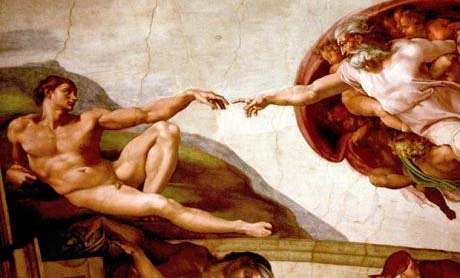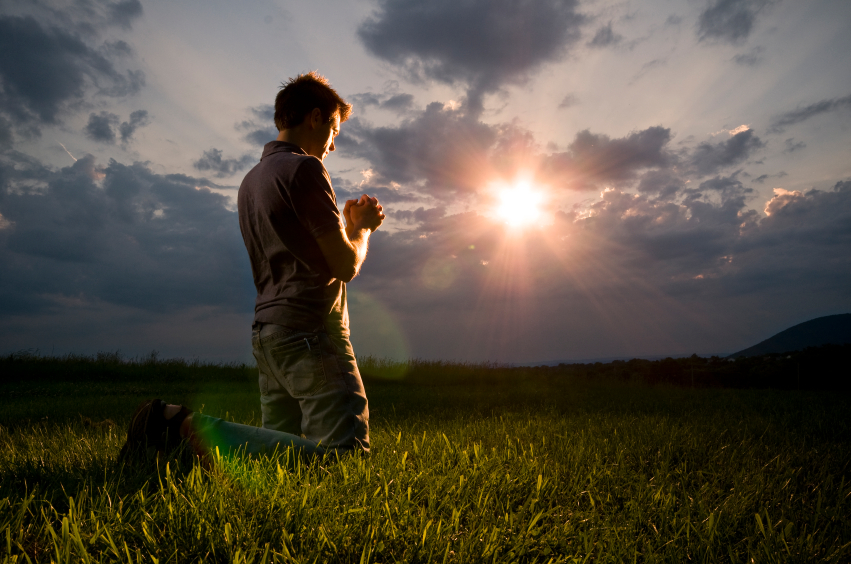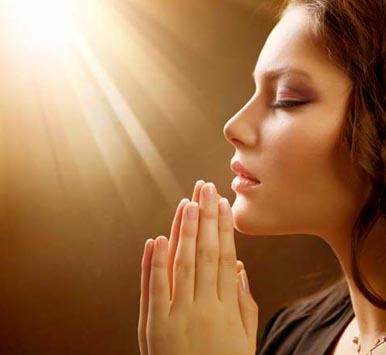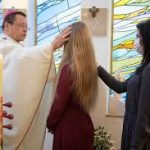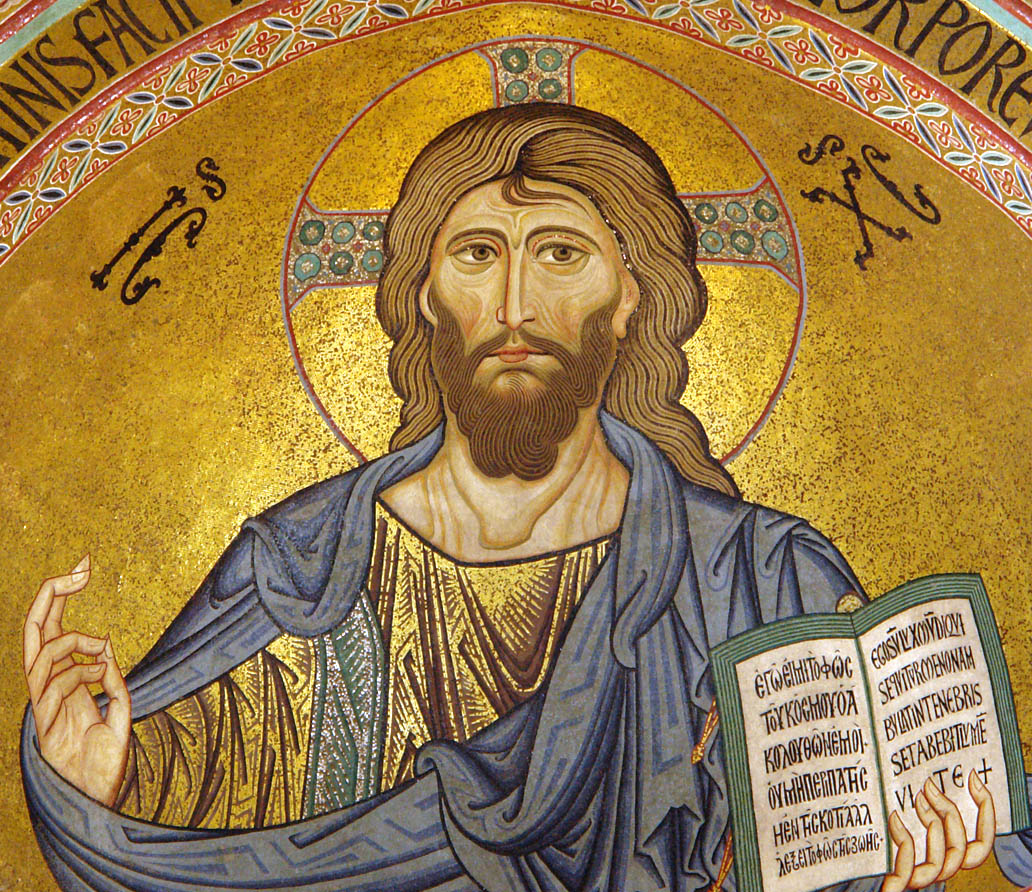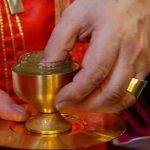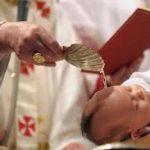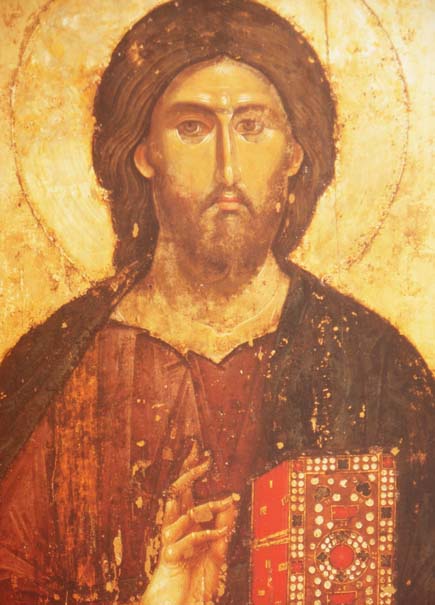Confirmation Questions – Test
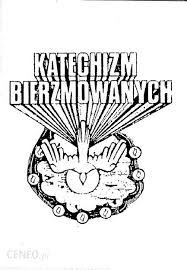
- Confession of faith
- What is faith ?
Faith is the personal adherence of the whole person ( reason and will) to god, which is revealed through deeds and words (176). It has a double dimension: adherence to the Person and to the truth (177). - Can a man through his mind know God? ?
By observing the order and beauty of the world and listening to the voice of your conscience, man can know God as the cause and end of everything (32nn; 46). - What are the reasons for God's revelation to man ?
Through love, God has revealed himself, offered to man. In this way, He gives a definitive and exhaustive answer to the questions about the meaning and purpose of human life (68). - When and how God spoke to man ?
God revealed himself to the first parents, and after falling into sin, he promised salvation to them and offered up his covenant. (71).He shaped his people and spoke through the prophets, preparing to accept the salvation destined for all mankind (72). He fully revealed himself by sending his Son (73). - Where God's Revelation is contained ?
God's revelation is contained in the Holy Scriptures and Tradition, which constitute one deposit of faith (97). - What is Holy Scripture ?
The Holy Scriptures are books written under the inspiration of the Holy Spirit, containing the revealed truth of God (105). - Who is the author of the Scriptures ?
God is the author of the Scriptures, who inspired human authors. This way it gives us confidence, that their writings contain faultlessly saving truth (136). - How many books are in the Holy Bible ?
The Scriptures are divided into the Old and New Testaments. The Old Testament includes 46 books, while New – 27 (138). - What is Tradition ?
Tradition is the teaching entrusted by Christ the Lord and the Holy Spirit to the Apostles and handed down by their successors (81). - What God reveals to us about Himself ?
God revealed himself as "The One, which is". It is Truth and Love (231). - What is the essential mystery of our faith ?
It is the mystery of the Holy Trinity: Father, Son and Holy Spirit (261). - Give a summary of faith in the Holy Trinity.
The Holy Trinity is One (253). God is one in three Persons. Three Divine Persons: God Father, The Son of God and the Holy Spirit are different (really separate) People (254). The divine persons do not differ in nature, but in their relations with one another (254n). - Which means, that God made the world ?
It means, that God guided by his wisdom and love (295), he called the world into existence out of nothing (296). - Why God made the world ?
God made the world, to reveal his glory; to share in his truth with his creatures, kindness and beauty (319). - What is God's providence ?
God's providence expresses itself in ordinances, through which God in His wisdom and love guides all creatures to their ultimate goal (321). - Who are the angels ?
Angels are spirit creatures, who continually glorify God and which serve to accomplish the work of salvation for other creatures (350). - Who is the man ?
God created man in his image (380). Man is the unity of body and soul (382). - What was the original state of man ?
The original state of man was a state of holiness and justice. Friendship with God was the foundation of happiness in Paradise (384). - As a result, man lost his friendship with God ?
Man has lost his friendship with God through sin (396nn). - What was the sin of the first humans? ?
Man tempted by the Evil One, at the beginning of the story, he abused his freedom, by turning against God and wanting to achieve your goal outside of Him (415). - The Effects of Sin of Our First Parents ?
Through the sin of our first parents, human nature was deprived of sanctity and justice and made subject to ignorance, suffering, the reign of death and the tendency to sin. This wound of human nature is called original sin (416-418). - Who freed man from the state of sin and reunited him with God ?
Jesus Christ did it, Son of God, who became man (420). - How Jesus Christ saved man ?
Jesus Christ saved man through the Cross and Resurrection (421). - What the Names "Jesus" and "Christ" Mean ?
The name "Jesus" means "God saves". The son of the virgin Mary was so named, because he is it, who saved the world from sin (452). "Christ" means "Anointed", "Messiah". Jesus is Christ, because he is anointed with "Holy Spirit and power" (Dz 10, 38) and in him the hope of Israel was fulfilled (Dz 28, 20) (453). - What does the term "Son of God" and the name "Lord" mean? ?
"Son of God" means the one and eternal relationship of Jesus Christ to His Father: He is the One Son of God the Father and is God Himself. Believe, that Jesus Christ is the Son of God is imperative, to be a Christian (454). The name "Lord" signifies divine authority. Confess, that Jesus is Lord means believing in His divinity (455). - Who is Jesus Christ ?
Jesus Christ is God and man. It has two natures: divine and human, not confused, but united in one Person of the Son of God (479). - What does the word "incarnation" mean ?
At God's chosen time, Only Son of the Father, he became man did not lose his divine nature, adopted human (479). - How the Son of God became man ?
The Son of God was conceived of the Holy Spirit and was born of the Virgin Mary (484;487). - What does it mean, that Mary is the Mother of God ?
It means, that she is the Mother of the Son of God, who, through her, took human nature, being God Himself (509). - Which means, that Mary is Immaculately Conceived ?
Mary is Immaculately Conceived, it means, that from the moment of conception she was completely preserved from the stain of original sin. We are talking about her, that she is Immaculate, for she has committed no sin during her entire life (508).
31.What was Jesus' earthly life ?
Jesus' life was a constant teaching. His silence, miracles, prayer, love for people, special concern for the humiliated and the poor, complete acceptance of the cross sacrifice for people's redemption, finally the resurrection itself – they are the fulfillment of His word and the fulfillment of Revelation (561).
- What significance does Christ's resurrection have for man? ?
Christ, The firstborn of the dead (Col. 1,18), it is the cause of our resurrection; today – thanks to the justification of our soul, and later – by bringing our body back to life (658). - Which means, that Christ has ascended to heaven ?
Ascension means elevating Jesus' human nature to the glory of God the Father (665). - When and why Christ will come back to earth ?
Christ will return in glory on Judgment Day, at the end of the world, to complete the victory of good over evil (681). - What is the Last Judgment ?
Coming at the end of time, The glorious Christ will reveal the thoughts of the heart and render to each one according to his deeds and according to this, to what extent each has accepted or rejected grace (682). - Who is the Holy Spirit ?
The Holy Spirit is one of the Persons of the Holy Trinity, consubstantial with the Father and the Son (685). - What the Holy Spirit does in the Church ?
The Holy Spirit builds up, enlivens and sanctifies the Church (747). - What is the Church ?
The Church is a community of faith founded by Christ, hope and love having a double dimension – human and divine: it is a hierarchical community and the Mystical Body of Christ; a visible association and a spiritual community; a community on earth endowed with heavenly gifts (771). - What are the basic characteristics of the Church ?
The Church is one, holy, universal and apostolic. - Why is the Church One ?
The Church is one, for he has one Lord, professes one faith, it is born from a single baptism, forms one Body, he is animated by one Spirit and lives by one hope (866). - What does it mean, that the Church is holy ?
The Church is holy, because its Maker is the Most Holy God; Christ gave himself up for his sanctification; The spirit of holiness animates him (867). It is indeed made up of sinners, but they are called to holiness (825). - What does it mean, that the Church is universal ?
The Church is universal, it means, that he preaches all faith; he has all the means for salvation; he is sent to all nations; addresses every human being; covers all times (868). - What does it mean, that the Church is apostolic ?
The Church is apostolic, it means: it is built on the foundation of the twelve Apostles; it is indestructible (Mt 16,18); preserves the truth infallibly; Christ directs it through Peter and the other Apostles; present in their successors – the pope and the college of bishops (869). - What is the function of the Pope in the Church? ?
Pope, bishop of Rome, successor of St.. Peter, he is the head of the college of bishops, vicar of Christ and shepherd of the whole Church on earth (936). He has the highest by divine appointment, full, direct and universal pastoral authority (937). - What role do bishops play? ?
Episcopal, as successors of the Apostles and members of the College, they are the visible head of the local Church, they share in the apostolic responsibility and mission of the whole Church under the authority of the Pope (1594). - What is the role of priests ?
Priests are called to do so, to be collaborators with the bishops and to be responsible for the local Church with them. They receive from the bishop the mission of directing the parish community or a specific ecclesiastical function (1595).
- What is the role of the laity ?
The laity are called to do so, by living among the world and the affairs of the world, enlivened by the Christian spirit, they exercised their apostolate in the world as a leaven (940). - What does the term "communion of saints" mean? ?
This expression first means "holy things", and above all the Eucharist, by which the unity of the faithful is presented and realized, who in Christ form one body (960). The term also means the unity of the faithful in Christ, who are pilgrims on earth, they complete the purification or are saints in heaven, they realize themselves this way, that everyone through it, what he does or suffers in Christ and for Christ, it bears fruit for everyone (961n). - What is death and what does resurrection mean ?
By death, the soul is separated from the body, but in the resurrection, God will give a life that does not pass away, our body transformed and united with the soul (1016). - What happens immediately after death ?
Immediately after death, a detailed court follows, as a result of which, the human soul is subjected to the purification of purgatory, he participates directly in the happiness of heaven, or she is condemned (1022). - What is purgatory ?
There, who die in the grace and friendship of God, however, not completely cleansed, though they are sure of salvation, experience purification after death, to receive the holiness necessary to enter into God's joy (1054). - What is heaven ?
Heaven is the final end and fulfillment of the deepest desires of man, the state of supreme and ultimate happiness, full union with the Holy Trinity, Virgin Mary, angels and saints of all times (1024). - What is hell ?
Hell is the final state of breaking union with God, and man only in God can find life and happiness (1057).
- Sacramental Life
- What is Sunday ?
Sunday is the day of Christ's resurrection, Lord's Day. It is the essential day of the celebration of the Eucharist, A day of joy and refraining from work (1193). - What is a liturgical year ?
The liturgical year is an annual cycle, in the course of which the Church reveals the entire mystery of Christ, starting with the Incarnation and Nativity, through the Passion, Resurrection, Ascension and Pentecost, until we wait for the blessed hope and the coming of the Lord (1163). - What are the sacraments ?
The sacraments are effective signs of grace, instituted by Christ and entrusted to the Church, through which the life of God is communicated to us (1131). - What are the fruits of the sacrament of Baptism ?
They are the fruits of the sacrament of Baptism: forgiveness of original sin and all personal sins; birth to a new life, through which man becomes the adopted child of the Father, a member of Christ, the temple of the Holy Spirit. Through baptism, the baptized person is incorporated into the Church and becomes a sharer in the priesthood of Christ (1279). - Can You Be Saved Without Baptism? ?
There, who died for the faith, catechumens and all people, who under the influence of grace, not knowing the Church, with a sincere heart they seek God and try to do His will, they are saved, even if they were not baptized (1281). - How is Baptism? ?
The essential rite of baptism is immersion in water or pouring water over the head while pronouncing the words:” N., I baptize you in the name of the Father and of the Son, and the Holy Spirit " (1240). - Why Young Babies Are Baptized ?
Children are born with a fallen nature tainted by original sin, therefore they need a new birth, which is baptism (1250). This sacrament is a gift from God, which does not imply human merit; children are baptized in the faith of the Church (1282). - Who gives the sacrament of baptism ?
The ordinary minister is the bishop, priest or deacon. Anyone can baptize in case of necessity (not even baptized), who has the intention to do it, what the Church does, by administering this sacrament (1256). - What are the fruits of Confirmation ?
Confirmation perfects the grace of Baptism; it is a sacrament, who gives the Holy Spirit, to deepen in us the grace of God's childhood, unite us more closely with Christ, make our bond with the Church stronger, involve us more fully in his mission and help to bear witness to the Christian faith through the word, which accompanies the works (1317). - Who gives the sacrament of confirmation ?
The ordinary minister of Confirmation is the bishop. He may, for serious reasons, permit the administration of this sacrament to priests (1313). - What conditions should a candidate for confirmation fulfill? ?
A candidate for confirmation should profess faith, to be in a state of grace, have the intention to receive this sacrament and be ready to take the role of a disciple and witness of Christ in the community of the Church and in temporal matters (1319). - What is the essential rite of Confirmation ?
An important rite of confirmation is the anointing with the Chrism of St.. on the forehead, which is made, putting my hand on my head along with the celebrities: "Receive the mark of the gift of the Holy Spirit" (1320). - What is the Eucharist ?
The Eucharist is a memorial (making present) Passover of Christ, i.e.. Work of salvation accomplished by life, Christ's death and resurrection. This work is made present in the liturgical action (1409). - What are the essential parts of the Eucharist ?
The Eucharistic celebration includes: proclaiming the Word of God,
thanks to the Father for all good things, especially for the gift of his Son, the consecration of bread and wine, participation in the liturgical feast by receiving the Body and Blood of Christ. All these elements constitute one act of worship (1408).
89. What is Christian marriage ?
It is a covenant elevation to the dignity of the sacrament, through which a man and a woman create an inner community of life and love (1660).
- What graces are given by the sacrament of Matrimony ?
This sacrament gives spouses the grace to love each other with love, whom Christ loved the Church, it strengthens their indissoluble unity and sanctifies them on the way of eternal life (1661). - On whether the sacrament of marriage is based ?
The sacrament of marriage is based on mutual consent, i.e.. By the will of mutual and irrevocable self-giving for this purpose, to live a covenant of faithful and fruitful love (1662). - What are the essential features of a marriage ?
The salient features of marriage are: unity, indissolubility and openness to fertility (1664). - Life in Christ
- What is conscience ?
Conscience is the judgment of reason, through which man recognizes the moral quality of a specific act (1796). - What is a virtue ?
Virtue is a constant disposition of awareness and will, which guides our actions, organizes our passions and guides our conduct, that it is in line with reason and faith (1834). - What are the cardinal virtues : disproportion, justice, bravery and moderation ?
Prudence disposes the practical reason to discriminate under all circumstances, true good and to choose the right means to achieve it (1835). Justice is a steady and strong will to give it away, what is due to God and neighbor (1836). Courage provides steadfastness and constancy in the pursuit of good (1837. It moderates the propensity for sense enjoyment and ensures a balanced use of created goods (1838). - What are the theological virtues: faith, hope and love ?
Because of the virtue of faith, we believe in God and all of this, what He has revealed to us and what the Church puts on faith (1842). Thanks to the virtue of hope, we desire and expect eternal life and the graces needed to attain it with constant trust (1843). Thanks to the virtue of love, we love God above all else, and your fellow men, for the love of God, as themselves (1844). - What is sin ?
Sin is an offense against God and His love, a wound inflicted on the dignity of a child of God and the Church (1487). - What is grace ?
Grace is a participation in God's life (1997); he is God's help, that we may respond to the calling and become His adopted children (2021). - What is sanctifying grace ?
Sanctifying grace is a free gift, through which God gives us his life infused by the Holy Spirit into our soul, to heal her of sin and sanctify her (2023). - What is the first commandment of the decalogue about? ?
He's calling the man, to believe in God, in him he trusted and loved him above all else (2134). - What the second commandment of the decalogue says ?
It commands respect for God's name (2161) and prohibits its misuse (2162). - How We Fulfill God's Third Commandment ?
We fill it by celebrating Sunday – resurrection day and holidays ordered by the Church. We celebrate by participating in the Eucharist (2192) and refraining from work (2193). - What it says and what the fourth commandment of God obliges to do ?
In this commandment, God reveals, that it is His will, that we worship our parents and these, whom He has endowed with authority for our good (2248). Children should show their parents respect, gratitude, just obedience and help (2251). Parents are the first persons responsible for educating their children to faith and a moral life. They have a duty to provide – as far as possible – meet the material and spiritual needs of your children (2252). - What is the fifth commandment in the decalogue? ?
It commands respect for human life. Life is sacred from conception until death, for the human person is wanted for himself in the image and likeness of the living and holy God (2319). - What the sixth commandment of God says ?
It calls for the purity of each person according to the state of life (2349). Chastity is the integration of sexuality in a person, the internal unity of the physical and spiritual dimensions of man (2337). Some sins against this commandment are: licentiousness, masturbation, intercourse outside – and premarital, pornography, prostitution, rape, homosexual practices (2351 – 2359). - What the seventh commandment of God says ?
It commands the practice of justice and love in managing earthly goods and the fruits of human labor (2450). - What the Eighth Commandment in the Decalogue says ?
He forbids lying, that is, speaking untruth in order to deceive your neighbor, who has a right to the truth (2508). - What is in the ninth decalogue? ?
He warns against the lusts of the flesh (2529). - What the tenth commandment of God says ?
It forbids the greed born of an unlimited desire for riches and the power they contain (2552).
- Christian prayer
- What is prayer ?
Prayer is the raising of the soul to God, or a plea to Him for good things (2590). - To whom we are addressing our prayers ?
Basically, the prayer is addressed to God the Father. We can also direct it to Christ (2680). The Church invites us to do so too, to invoke the Holy Spirit, especially as the interior Master of Christian prayer (2681). - What prayer Jesus taught us ?
Jesus taught us to pray "Our Father", which is a summary of the whole Gospel and the most perfect of prayers (2774). We call it the Lord's Prayer, because our Lord and Master taught us, Jesus Christ (2775). - What we pray for in the Lord's Prayer ?
The prayer contains seven petitions. The object of the first three is the glory of the Father: sanctification of his name, the coming of the kingdom, fulfillment of God's will. In the next four we present our desires: we pray for it, what is needed for life, for healing from sin; the next two refer to our struggle for the victory of good over evil (2857). - From the life of the Church
- What is a diocese ?
The diocese is part of the Church, which is ruled by the Bishop Ordinary. The diocese is divided into deaneries, and deaneries into parishes. Several dioceses form a metropolis, and several metropolises make up an ecclesiastical province. - To which Metropolis our diocese belongs to ?
Our diocese belongs to the Metropolis of Częstochowa,(including Sosnowiecka and Radomska) - Who is its Patron and Shepherd ?
The patron of the diocese is the Blessed Virgin Mary, Queen of Poland, and the pastor is Archbishop.
Wacław Depo
- Which deanery does your parish belong to and who is its dean ?
Our parish belongs to the deanery of St.. Joseph
The dean is Father Stanisław Jasionek from the parish of St.. Floriana - Name the priests working in your parish.
He is the pastor of our parish community …
and the Vicars are: …
- My Patron of Confirmation
- Who was, when he was alive , what he was famous for ?
- What does his name mean ?
- Whose patron is it ?
